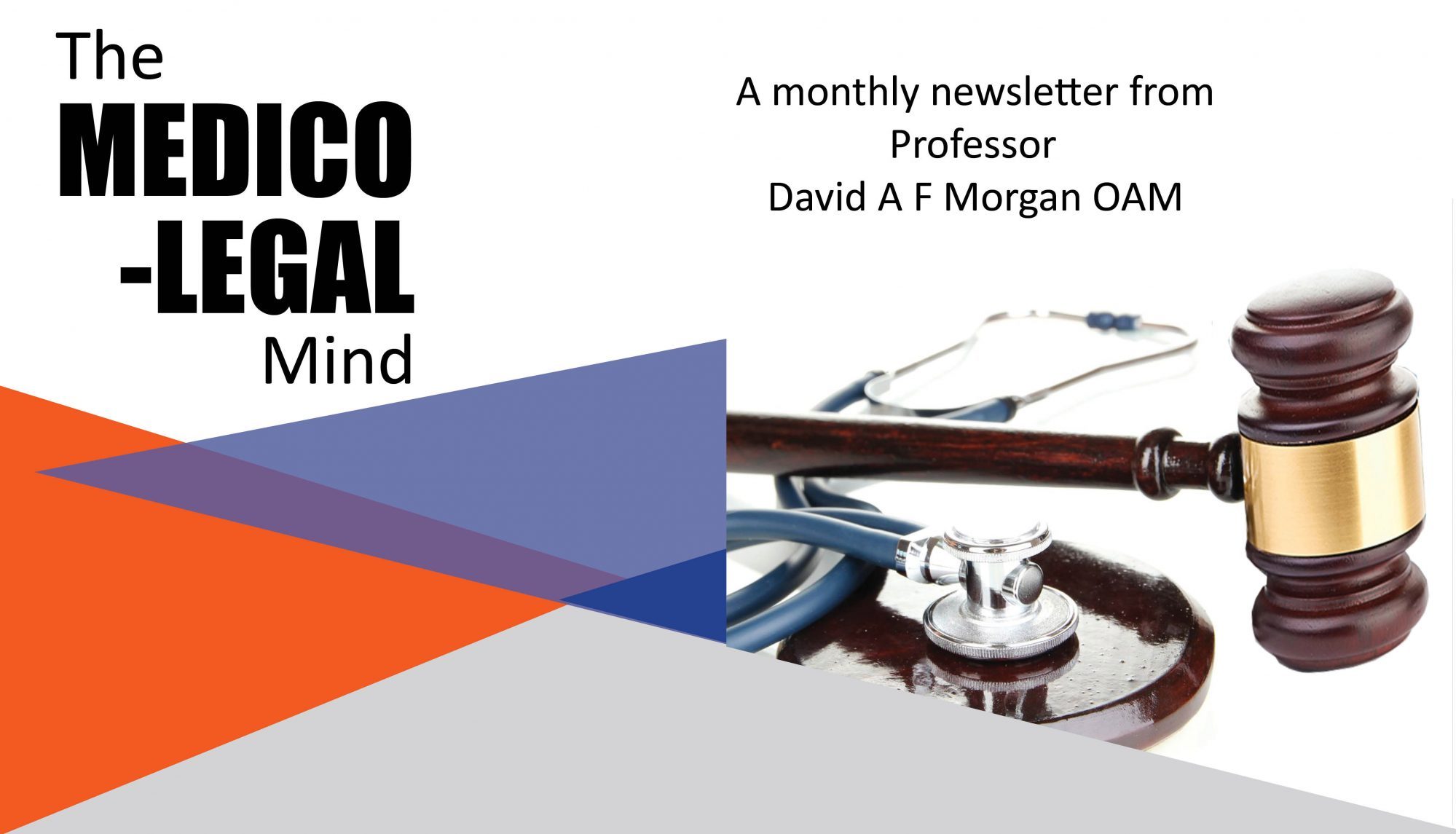GENERAL ADVICE – SEPTEMBER 2018
Can You Change The Expert’s Mind?
I am referring to the scenario where an expert’s report does not align closely with the complaints made by the plaintiff or with your own perception of the plaintiff’s case.

The mismatch may result from the inadequate supply of relevant information, an unreasonable bias on the part of the expert or a true misunderstanding between perception and reality.
Every month or so, I am involved in a teleconference or a face-to-face meeting when lawyers acting for either the plaintiff or the defendant test me upon the views that I have expressed. Not only do I recognise that this is a proper and appropriate exercise, I genuinely welcome the approach. I enjoy the interchange, I recognise that I am capable of error; I understand that some complex processes require explanation and I am in pursuit of truth.

I have not kept any statistics as to the likelihood or otherwise of me changing my opinion. The frequency is probably irrelevant. More importantly, I see need to applaud the process. The medicolegal analysis does not end with the furnishing of the report at the end of the consultation. The process is a continuum. It is likely to pass through mediation and possibly to trial. It may even be subject to appeal at a higher level. When accepting a brief, I recognise the full potential extent. I also recognise that although I should be clear and unambiguous with my opinion, I could get it wrong. There may be occasions when I will have to “change my mind”.
The Question and Answer Corner
Dear Dr Morgan
I recall that in a previous issue you spoke about one of the patients you had seen in the medicolegal environment. That was the patient who was a young girl sitting on the steps of a country home in a small town in western Queensland. It transpired that there had been a mix-up in the maternity ward of the local hospital six years previously. She had been given to the wrong parents and in turn, her parents had taken home another baby.
This was a particularly sad case and I was grateful to you for sharing it. It did occur to me though that maybe you were encroaching upon that particular plaintiff’s privacy and the information you shared may have exceeded an acceptable limit. What is your view?
Yours sincerely
FB
Dear FB
I am glad you read The Medicolegal Mind newsletter and I remember the issue clearly. That particular patient has left an indelible memory upon my mind.
Many of the events have been changed in that story such that it borders on the unrecognisable. More importantly, that particular plaintiff gave me personal permission to use her story as I saw fit with those caveats. She believed that she was not the only one who had suffered this way in our society and also recognised that her story could be used in different fora to exemplify many points.
I am grateful to you though for your warning and I will continue to be cautious whenever I use clinical experiences in this on-line publication.
Yours sincerely
David Morgan
Dear Dr Morgan
This may sound like a silly question but what is the most difficult case you deal with?
Yours sincerely
GY
Dear GY
The question is not silly and rather than focus on one particular case, it is a type of patient that I find the most difficult.
The patient is uncommon, treasured and precious. It is the patient who has been very severely injured but goes to great lengths to downplay the after-effects. According to this type of patient, what seemed to have been overwhelming injuries has resulted in little or no symptoms at all. It borders on the unbelievable. Some of these patients are particularly stoic, disinclined to complain and in all probability, do themselves a disservice.
Orthopaedic surgeons with experience can use a filter to assist with the assessment. That filter is created by decades of experience. For example, I have seen thousands of tibial fractures. I have been able to witness a broad spectrum of outcomes from such an injury. The experience allows me to estimate relatively accurately the long-term effects of a tibial fracture according to its type, position and complexity.
Although some of these very difficult plaintiffs who downplay their situations can be hard to assess, it is the past experience that adds to the ability to provide an accurate analysis.
Yours sincerely
David Morgan
